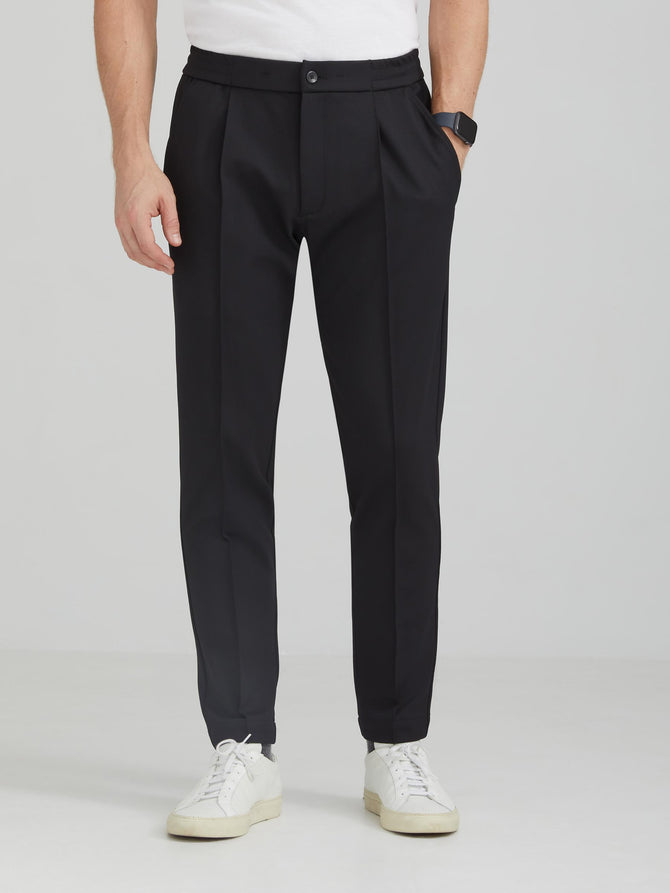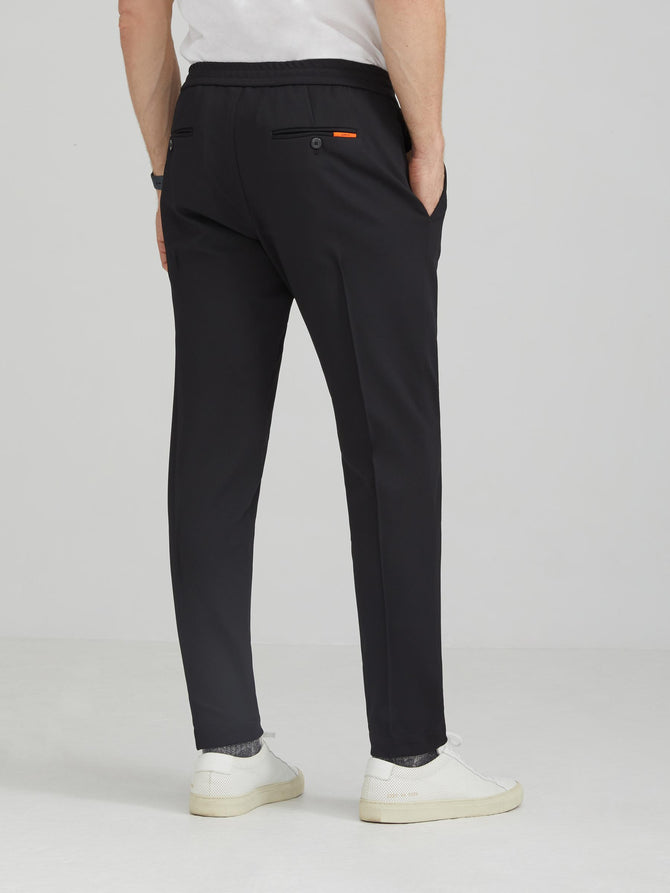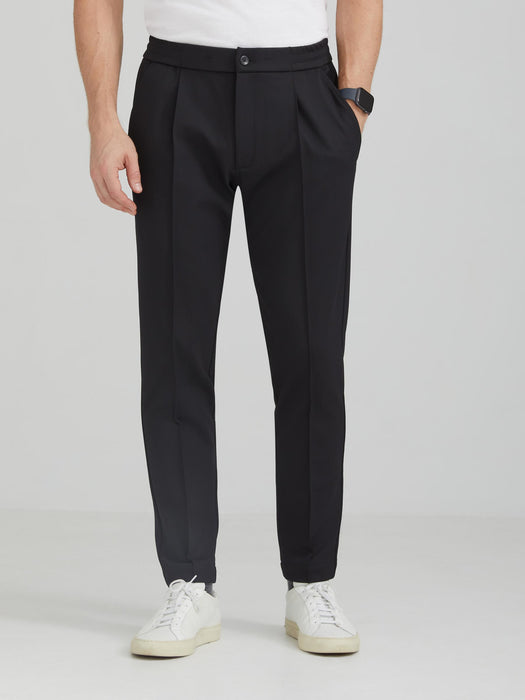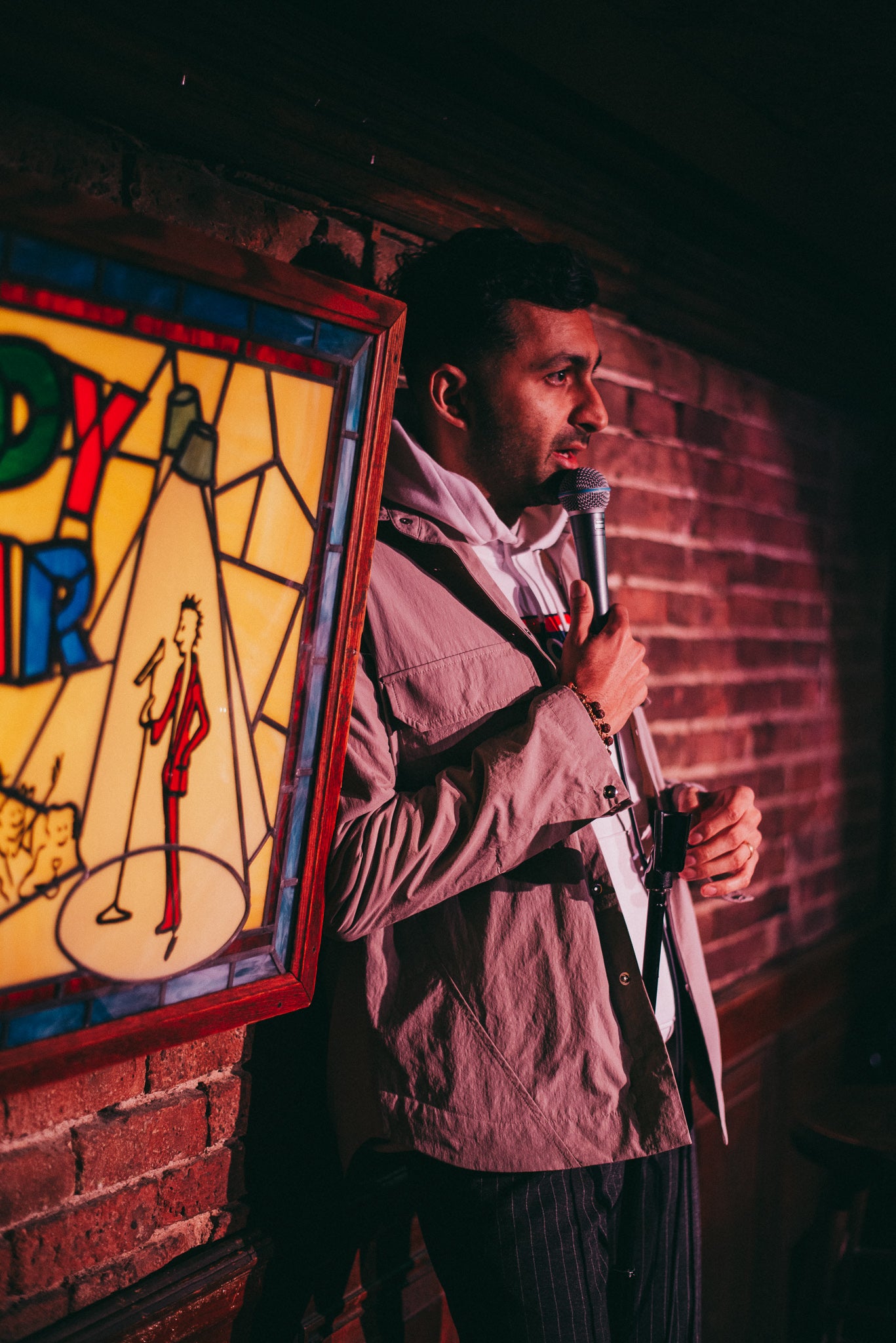
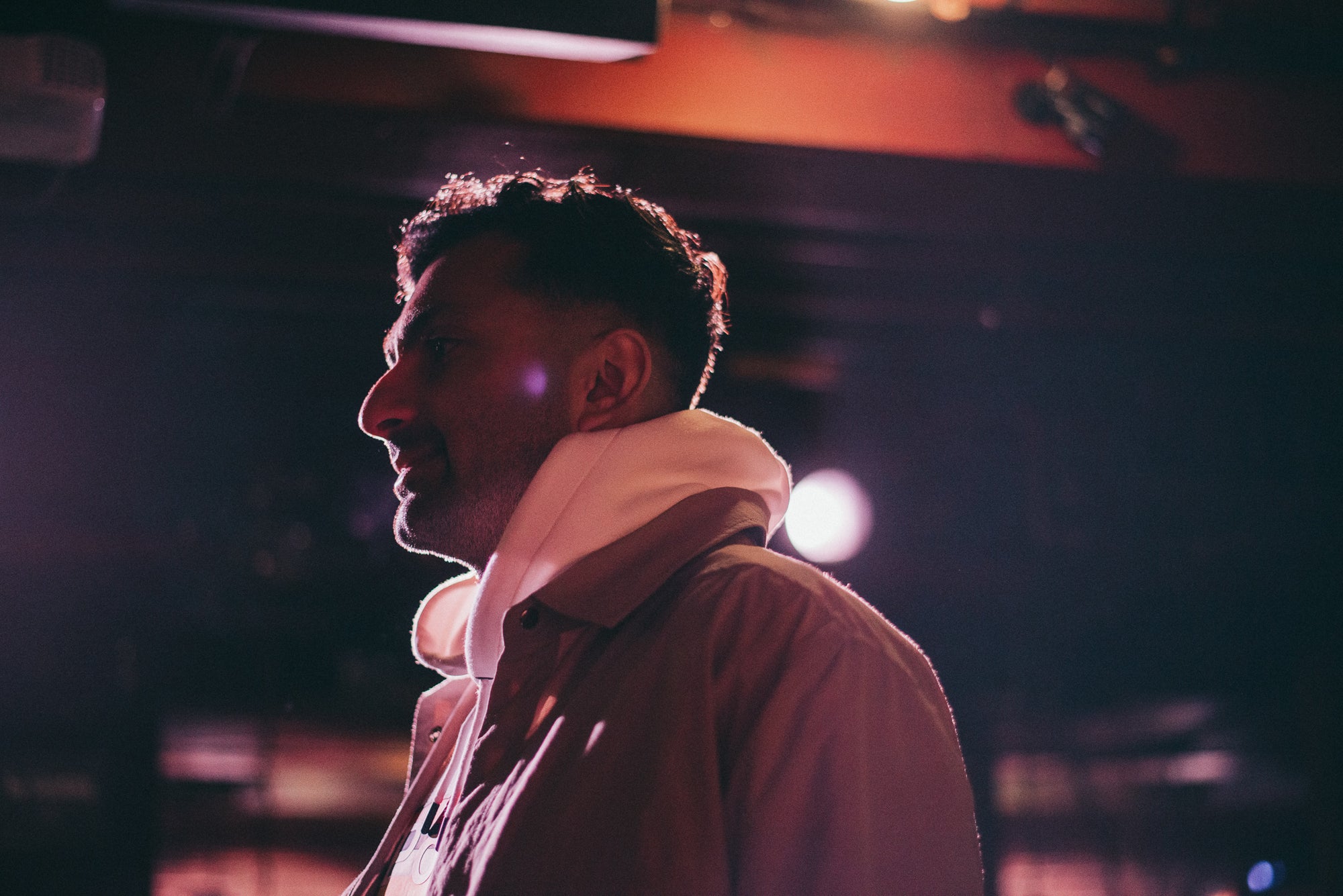
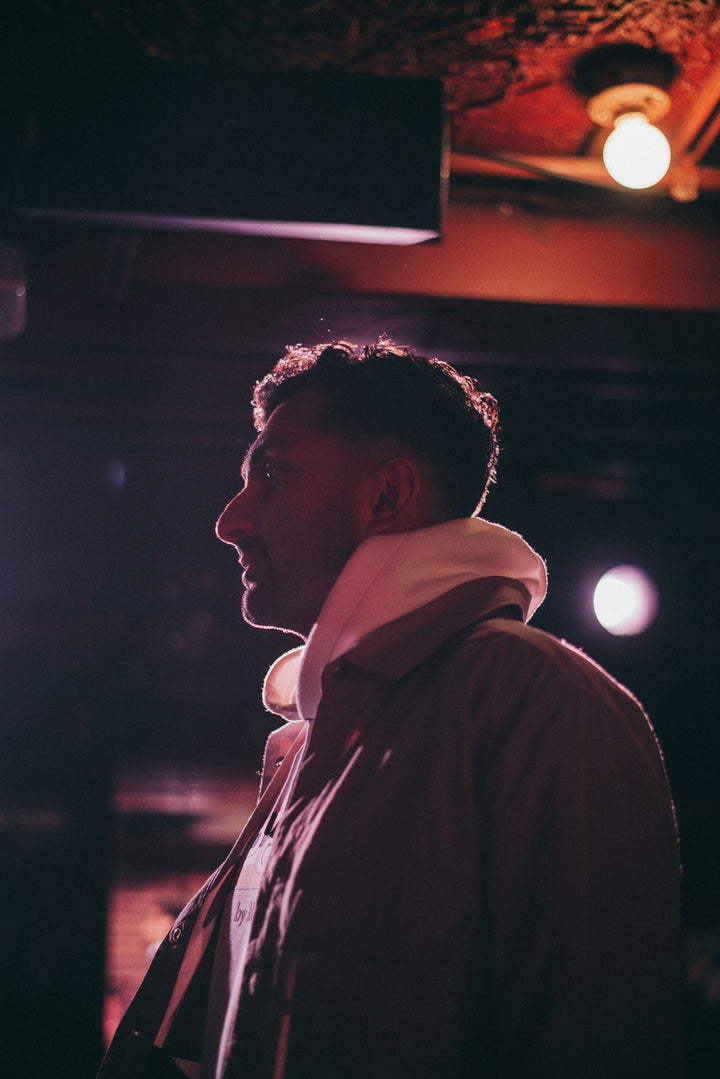
NIMESH
PATEL
The stage is therapy,
but it's not
all you need.
Nimesh Patel, 2023 AD
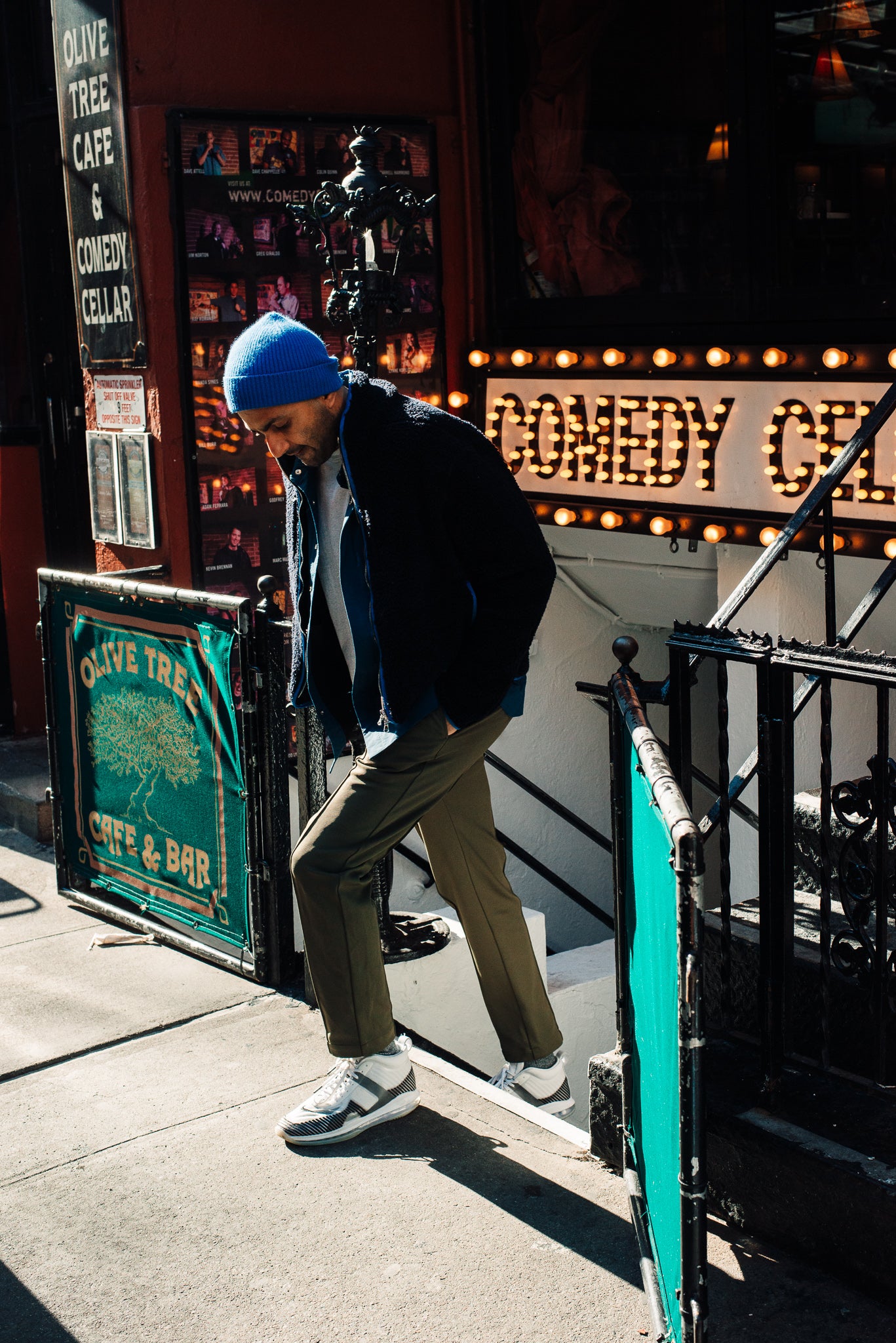
Emmy nominated comedian, the first Indian American writer on SNL, Comedy Cellar regular Nimesh Patel discusses how he failed upward into comedy, and his journey with mental health along the way.
All words by Nimesh Patel in conversation with Seneca.
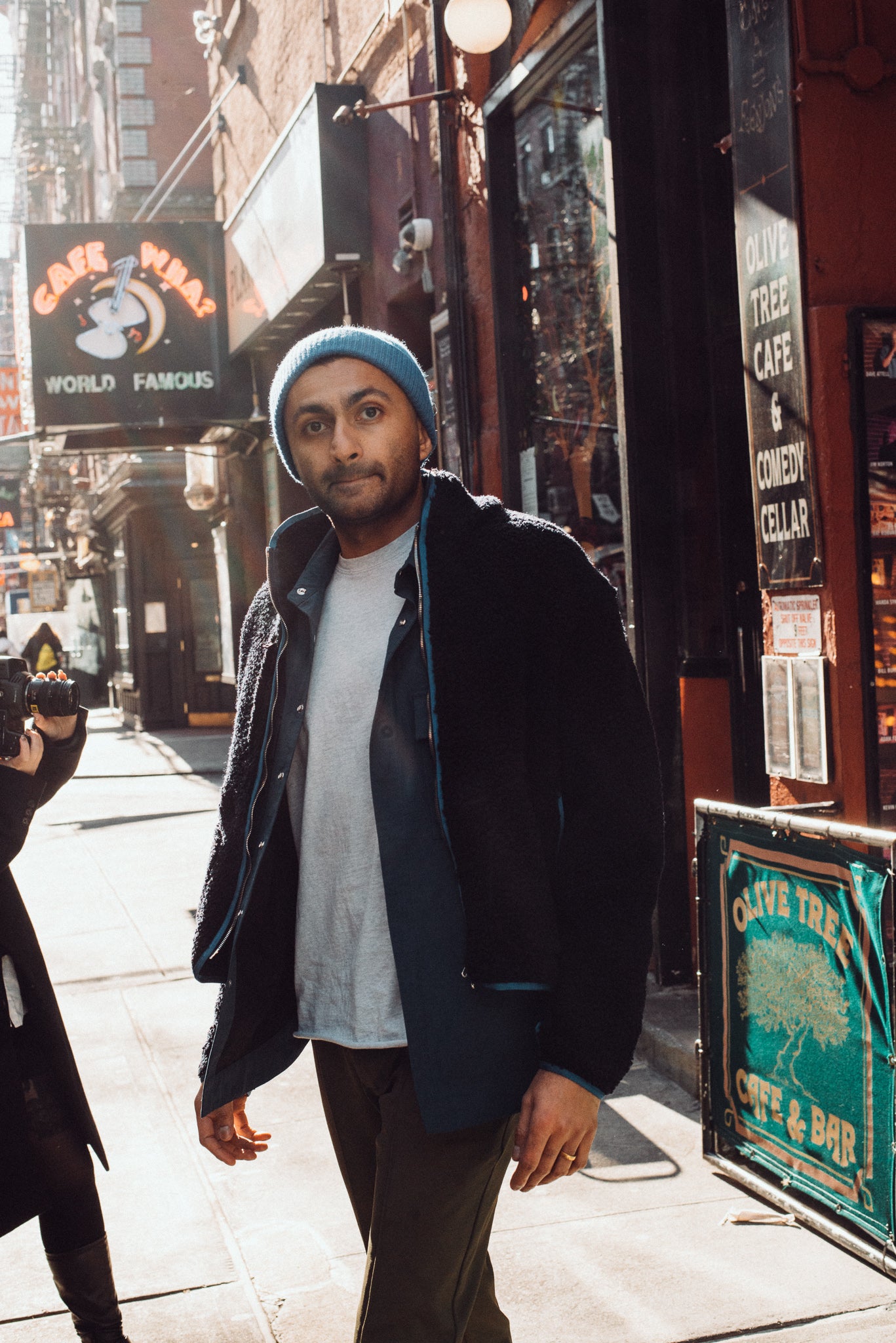
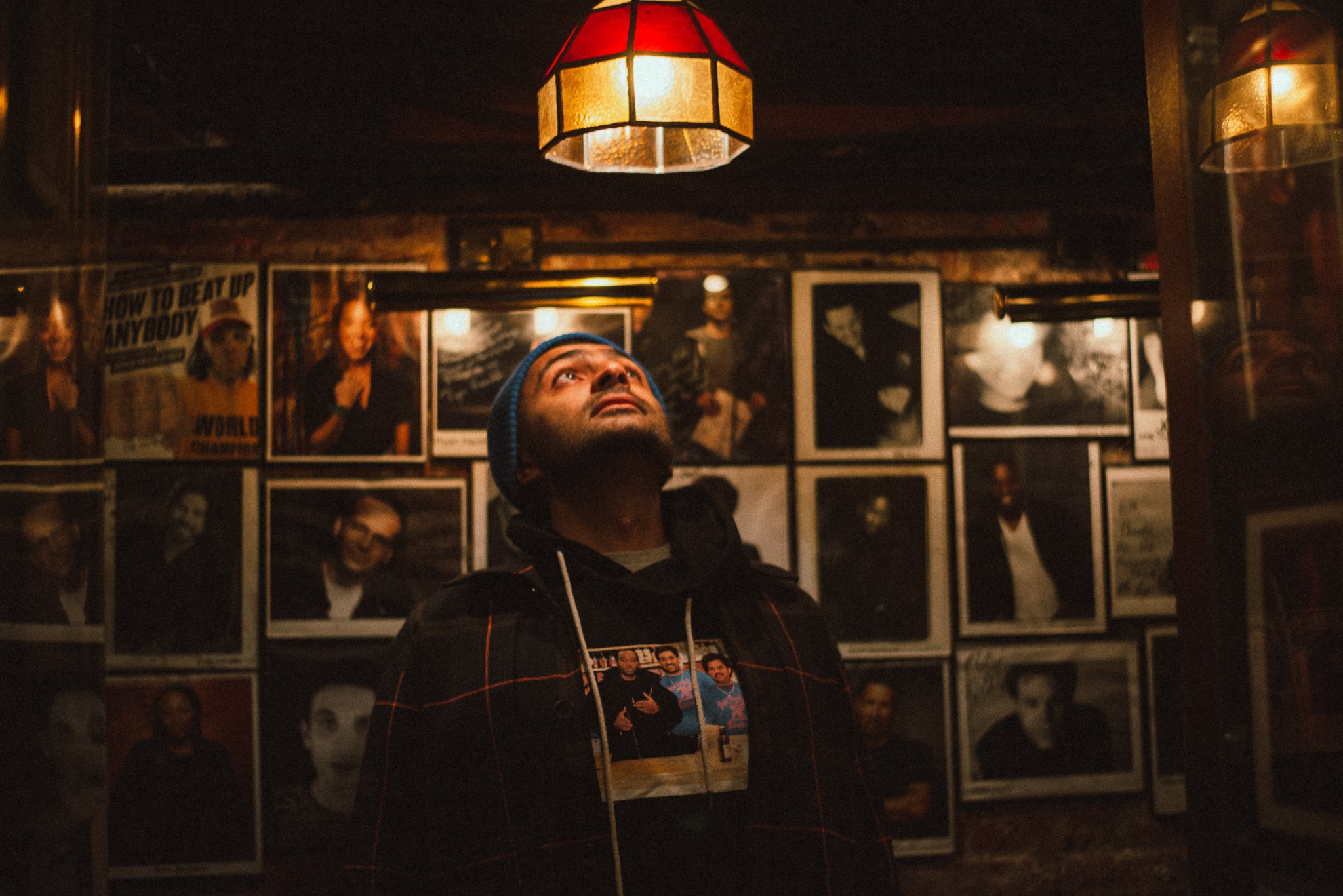
To me, it's like, I have things to say and I'm funnier than all of you, so hear me out.

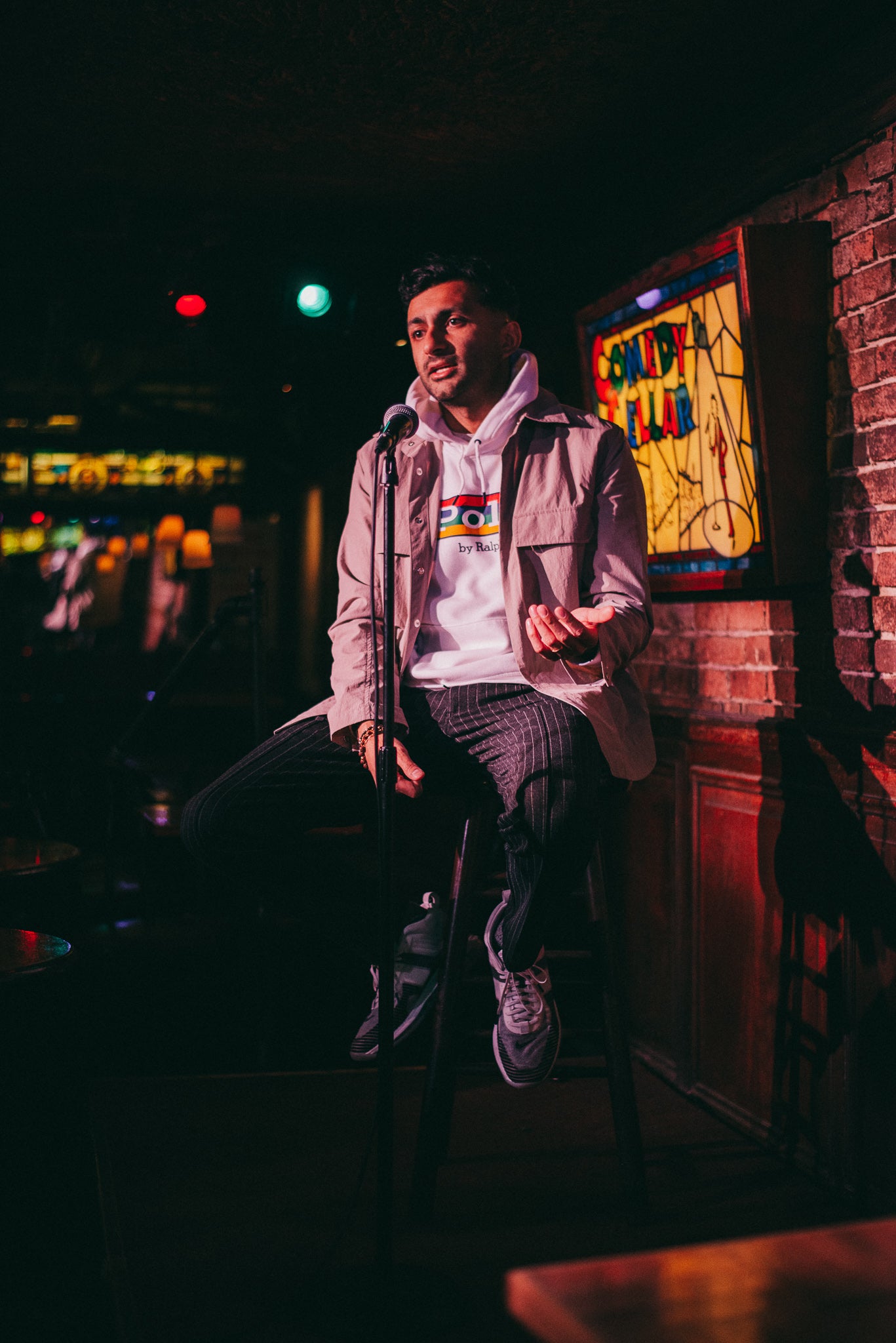
2008, a terrible year to be a finance major, especially one that underperformed.
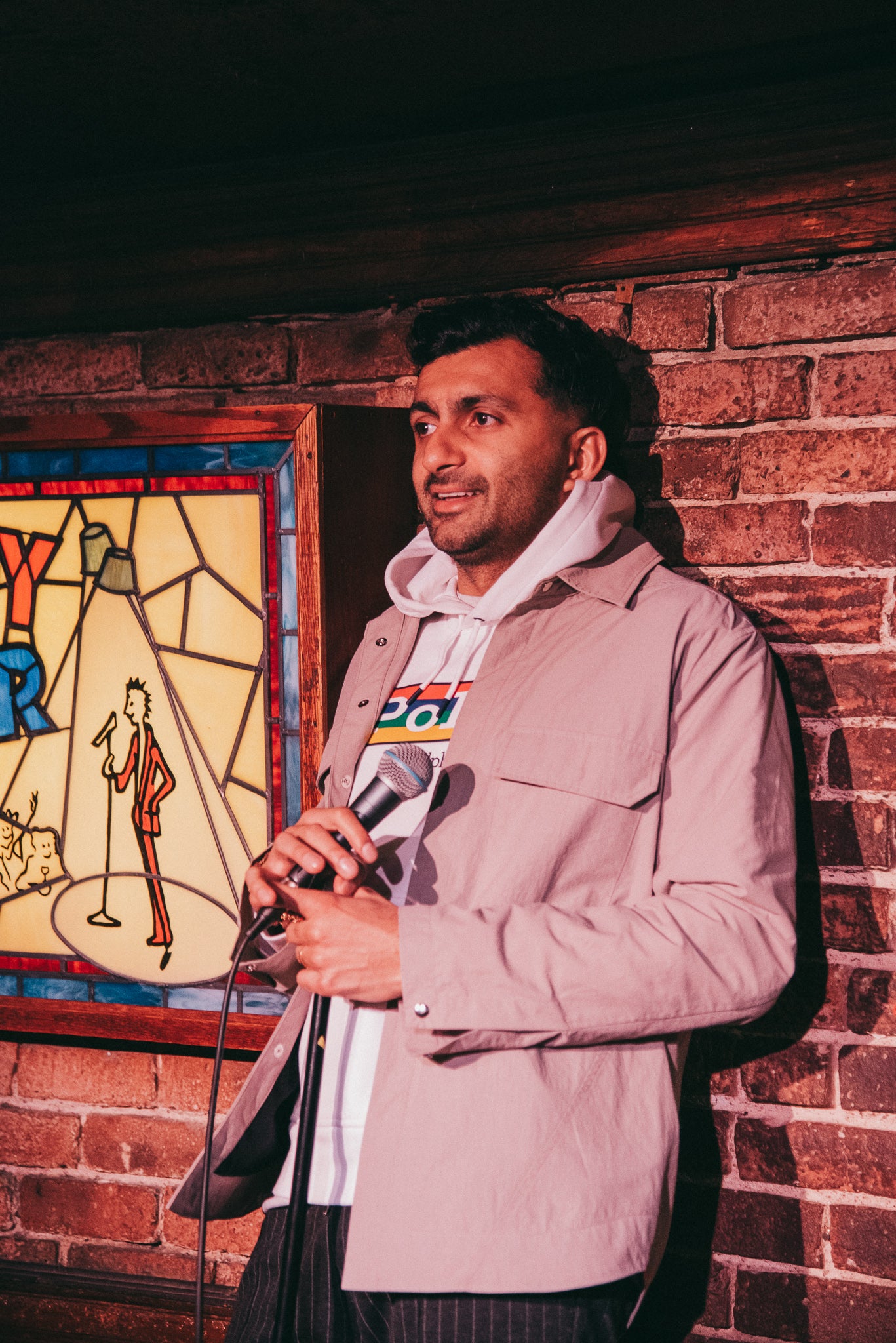
To me, it's like, I have things to say and I'm funnier than all of you, so hear me out.
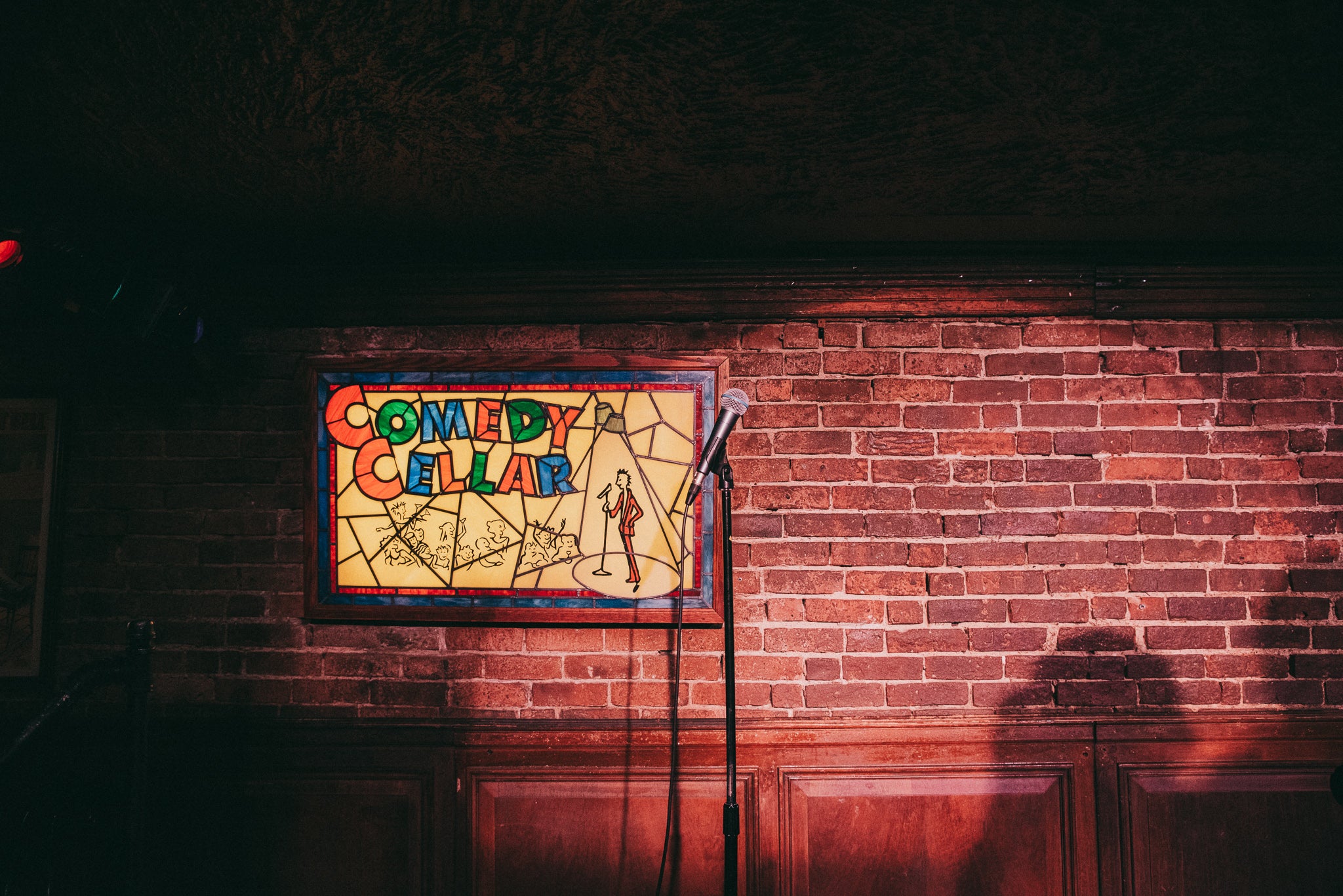
This is the Cellar. Those are Oscar winners up there, Emmy winners.
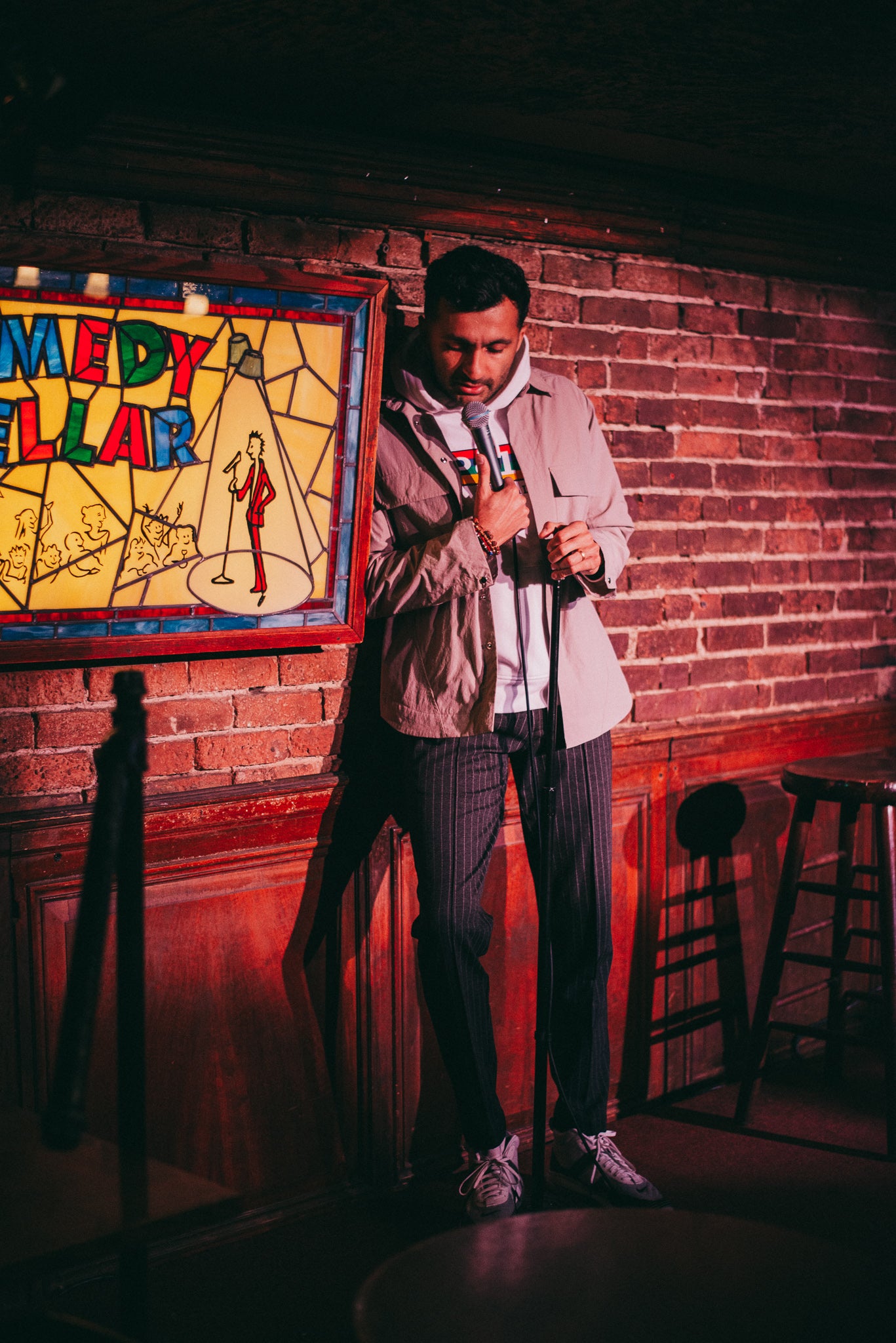
Growing up, I thought I was super fresh.
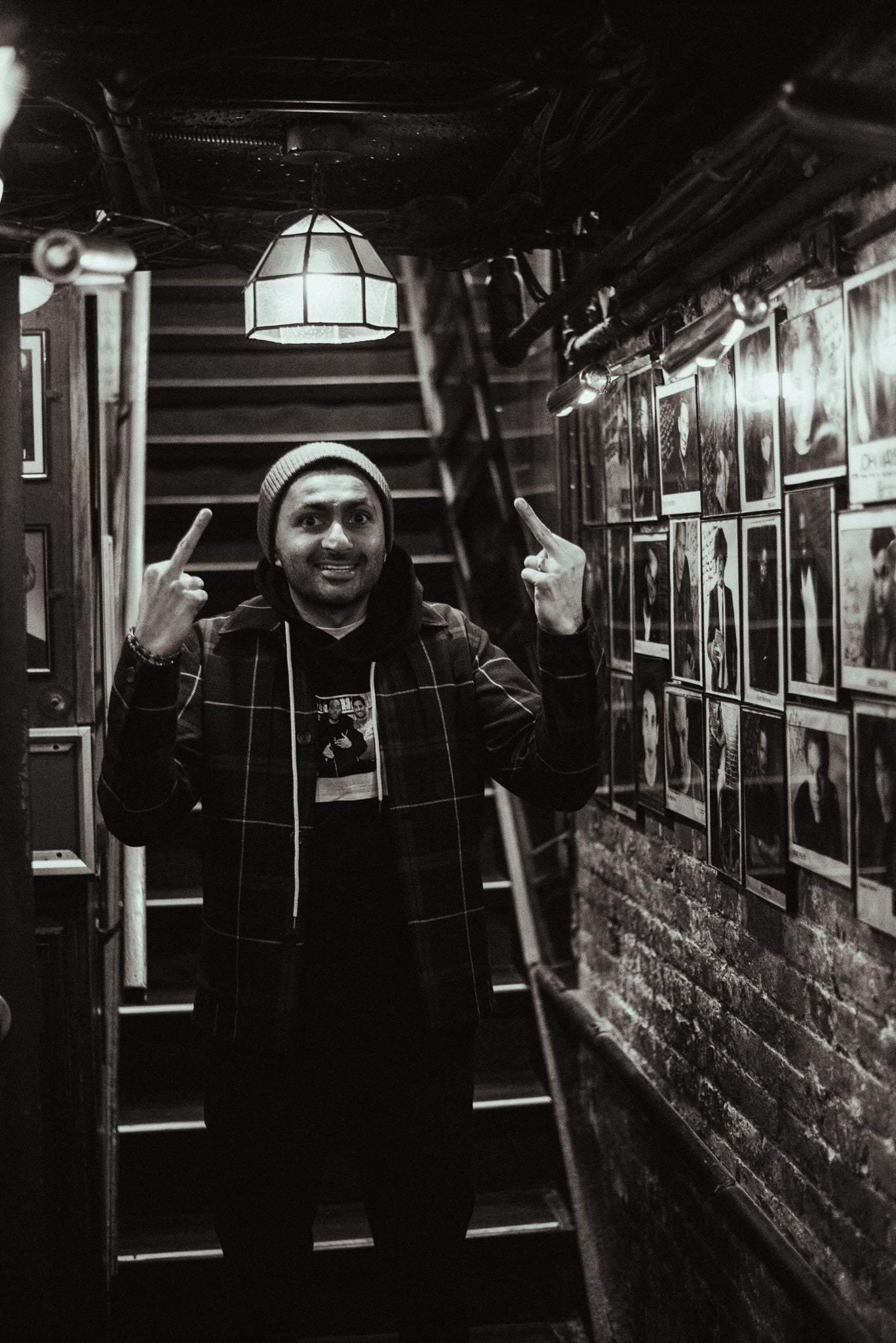
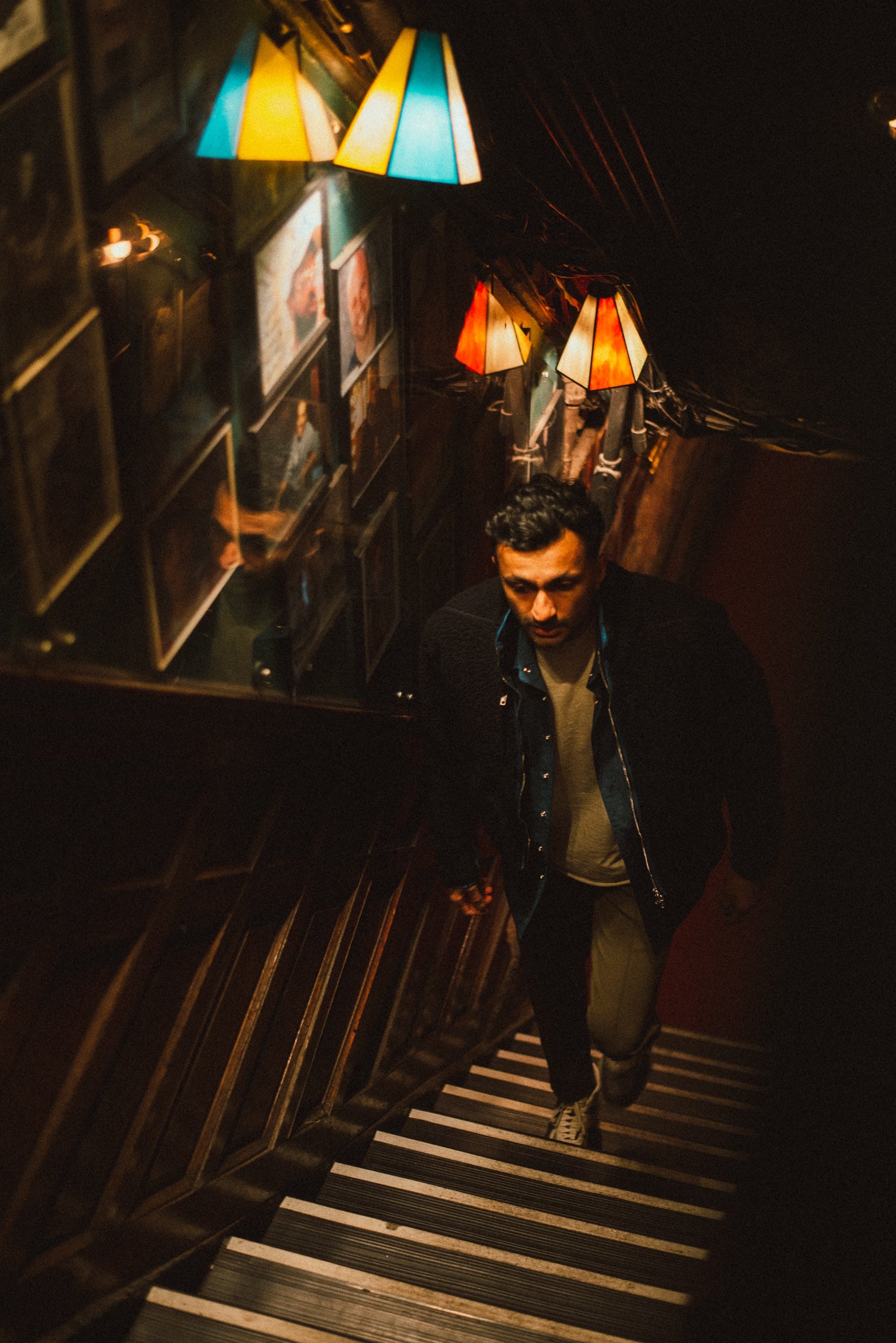
I think if therapy was marketed to Asians as, you will get higher SAT scores, it would take off.
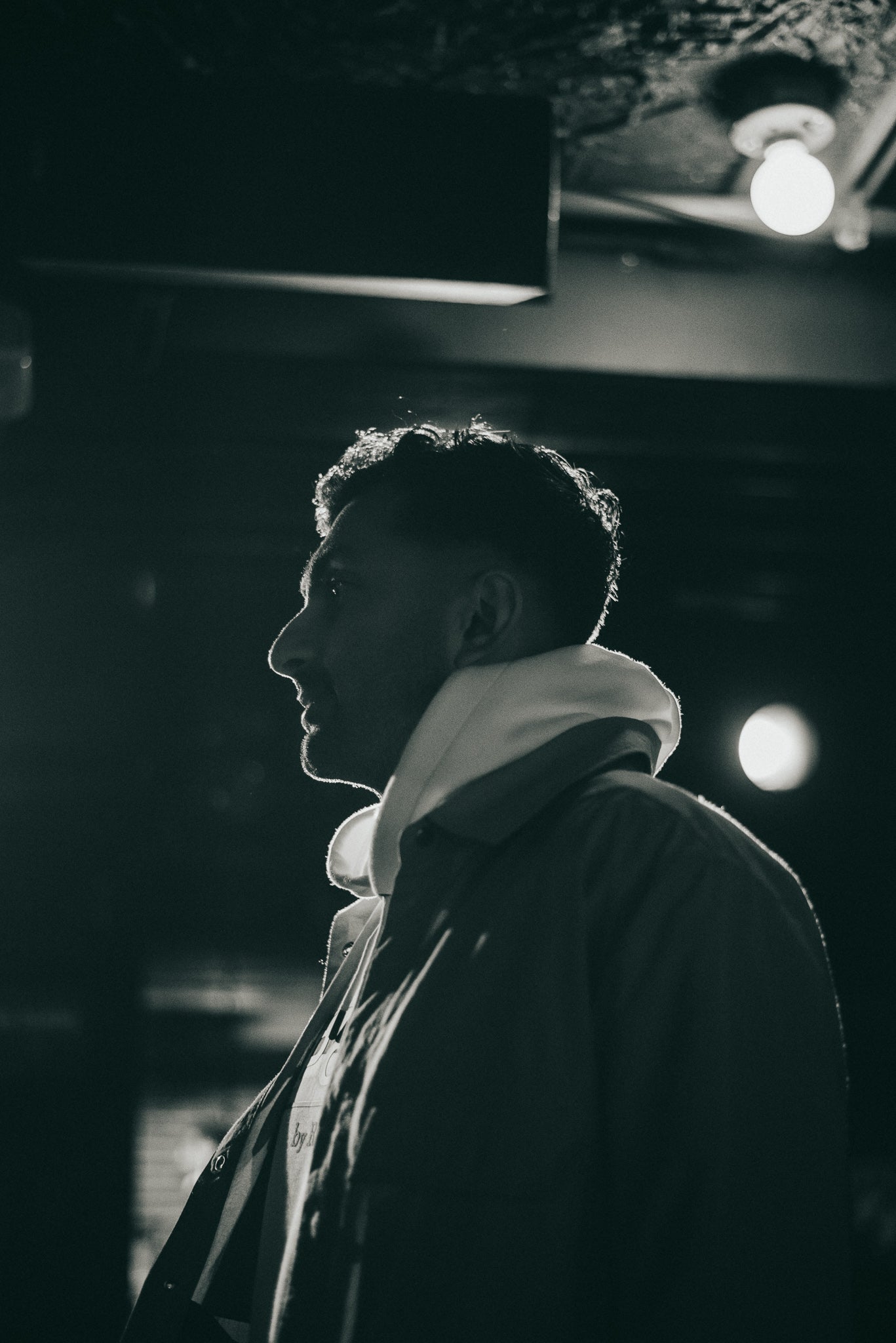
My journey in mental health probably started, as with a lot of people, mid-pandemic.
South Asian mental health is one of the few things I’ll use my platform to support.
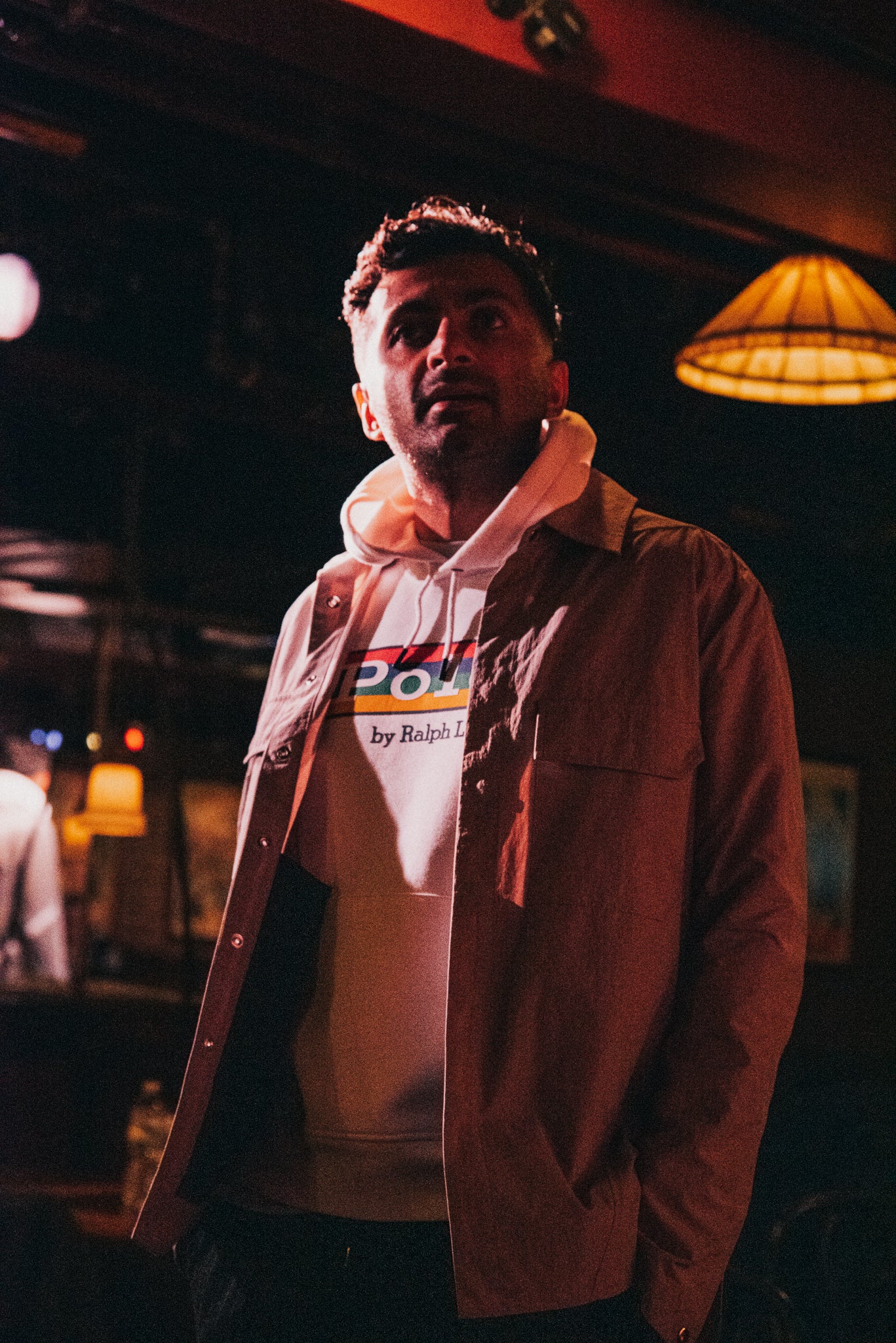
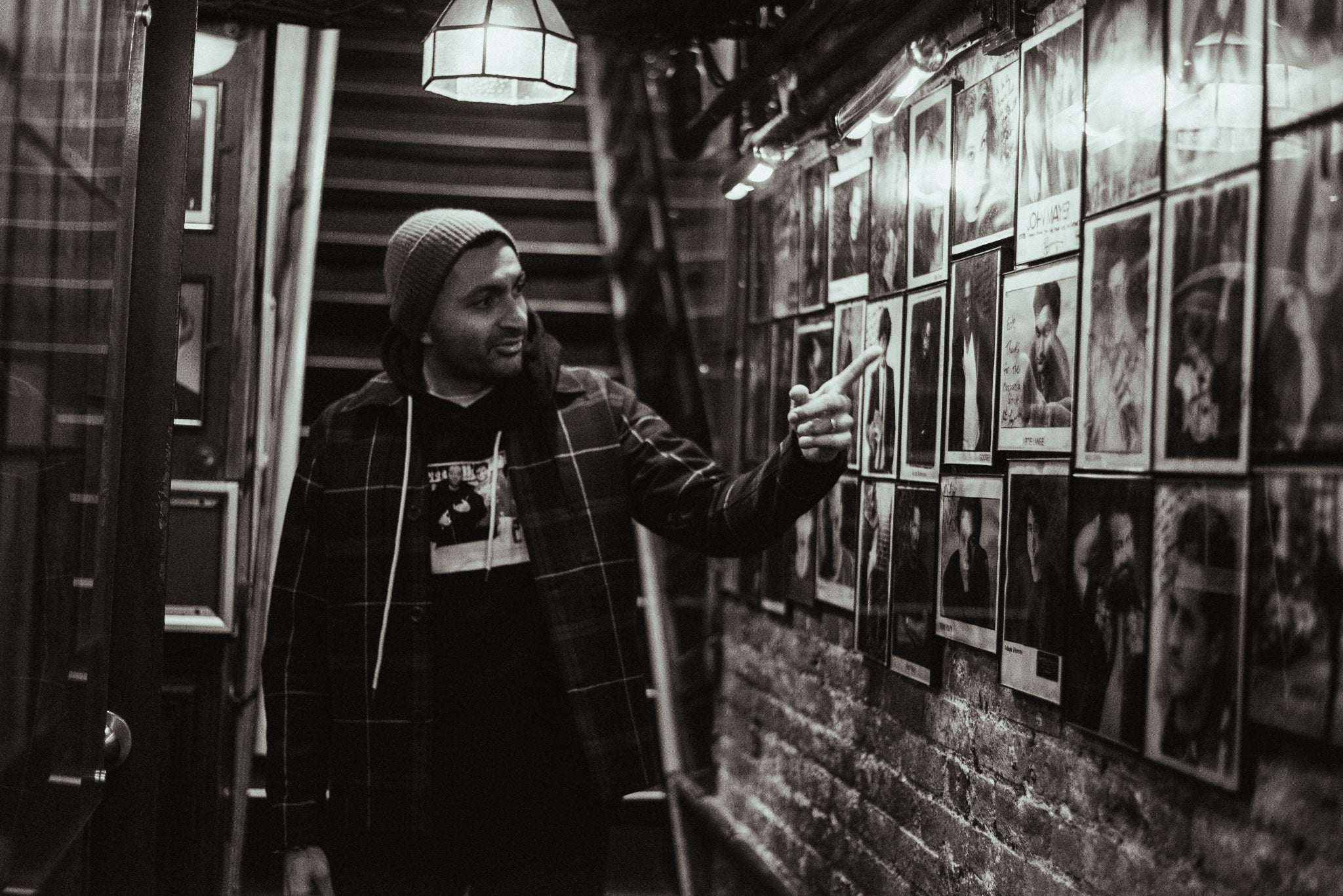
Measurements. All garments are hand-measured for accuracy.
It may be helpful to compare these product measurements to a similar garment you already own. To do this, place the garment on a flat surface and take all measurements from the outside.
Modena Shirt
- S
- M
- L
- XL
- Chest
- 40"
- 42"
- 45"
- 47"
- Back Length
- 28"
- 28"
- 28 1/2"
- 28 1/2"
- Sleeve Length
- 24"
- 24 1/2"
- 26"
- 26 1/2"
- Shoulder Width
- 17 1/4"
- 17 3/4"
- 18 1/2"
- 19"
Lumen Shirt
- S
- M
- L
- XL
- Chest
- 39"
- 41"
- 44"
- 46"
- Back Length
- 28 3/4"
- 29 1/4"
- 30"
- 30 1/2"
- Sleeve Length
- 24 3/4"
- 25 1/4"
- 26 1/2"
- 27"
- Shoulder Width
- 17 1/2"
- 18"
- 18 1/2"
- 19"
Forma Jacket 2
- S
- M
- L
- XL
- Chest
- 36 1/2"
- 38 1/2"
- 41 1/2"
- 43 1/2"
- Back Length
- 28 1/2"
- 29"
- 29 3/4"
- 31 1/4"
- Sleeve Length
- 24"
- 24 1/2"
- 25"
- 25 1/2"
- Shoulder Width
- 17 1/4"
- 18"
- 19"
- 19 3/4"
Terra Jacket
- S
- M
- L
- XL
- Chest
- 40"
- 42"
- 45"
- 47"
- Back Length
- 28"
- 28 1/2"
- 29 1/4"
- 29 3/4"
- Sleeve Length
- 25"
- 25 1/2"
- 26"
- 26 1/2"
- Shoulder Width
- 18"
- 18 1/2"
- 19 1/4"
- 20"
Vanta Pant
- 30R
- 32R
- 32L
- 34R
- 34L
- 36R
- Waist
- 30"
- 32"
- 32"
- 34"
- 34"
- 36"
- Outseam
- 39"
- 39"
- 41.5"
- 39"
- 41.75"
- 40"
- Inseam
- 29"
- 29"
- 31"
- 29"
- 31"
- 29"
- Hem Opening
- 12.5"
- 12.75"
- 12.75"
- 13"
- 13"
- 13.25"
Vanta GPT
- 30R
- 32R
- 32L
- 34R
- 34L
- 36R
- Waist
- 30"
- 32"
- 32"
- 34"
- 34"
- 36"
- Outseam
- 40"
- 40.5"
- 43.25"
- 40.5"
- 43.25"
- 41"
- Inseam
- 30"
- 31.5"
- 33.5"
- 31.5"
- 33.5"
- 32"
- Hem Opening
- 13"
- 13"
- 13"
- 14"
- 14"
- 14"
Vanta Pro
- 30R
- 32R
- 32L
- 34R
- 34L
- 36R
- Waist
- 30"
- 32"
- 32"
- 34"
- 34"
- 36"
- Outseam
- 37"
- 37"
- 39.5"
- 39"
- 41.5"
- 40"
- Inseam
- 29"
- 29"
- 31.5"
- 30"
- 32.5"
- 30.5"
- Hem Opening
- 13"
- 13"
- 13"
- 13.25"
- 13.25"
- 13.5"
Cortina Longsleeve Knit
- S
- M
- L
- XL
- Chest
- 41"
- 43"
- 46"
- 48"
- Back Length
- 25 1/2"
- 26 1/2"
- 27"
- 27"
- Sleeve Length
- 23 1/2"
- 24 1/2"
- 25"
- 26"
- Shoulder Width
- 18 1/4"
- 18 3/4"
- 19 1/2"
- 20"
-
Still Unsure?
Email contact@thinkseneca.com with your typical size, height, and weight.
-
Returns or exchanges.
Try your purchase in the comfort of your own home and, if it’s not quite right, let us know and we’ll arrange a free exchange or return.
Measurements. All garments are hand-measured for accuracy.
It may be helpful to compare these product measurements to a similar garment you already own. To do this, place the garment on a flat surface and take all measurements from the outside.
Vanta Pant
- 30R
- 32R
- 32L
- 34R
- 34L
- 36R
- Waist
- 30"
- 32"
- 32"
- 34"
- 34"
- 36"
- Outseam
- 39"
- 39"
- 41.5"
- 39"
- 41.75"
- 40"
- Inseam
- 29"
- 29"
- 31"
- 29"
- 31"
- 29"
- Hem Opening
- 12.5"
- 12.75"
- 12.75"
- 13"
- 13"
- 13.25"
Vanta GPT
- 30R
- 32R
- 32L
- 34R
- 34L
- 36R
- Waist
- 30"
- 32"
- 32"
- 34"
- 34"
- 36"
- Outseam
- 40"
- 40.5"
- 43.25"
- 40.5"
- 43.25"
- 41"
- Inseam
- 30"
- 31.5"
- 33.5"
- 31.5"
- 33.5"
- 32"
- Hem Opening
- 13"
- 13"
- 13"
- 14"
- 14"
- 14"
Vanta Pro
- 30R
- 32R
- 32L
- 34R
- 34L
- 36R
- Waist
- 30"
- 32"
- 32"
- 34"
- 34"
- 36"
- Outseam
- 37"
- 37"
- 39.5"
- 39"
- 41.5"
- 40"
- Inseam
- 29"
- 29"
- 31.5"
- 30"
- 32.5"
- 30.5"
- Hem Opening
- 13"
- 13"
- 13"
- 13.25"
- 13.25"
- 13.5"
-
Still Unsure?
Email contact@thinkseneca.com with your typical size, height, and weight.
-
Returns or exchanges.
Try your purchase in the comfort of your own home and, if it’s not quite right, let us know and we’ll arrange a free exchange or return.


















